HIGHLINE notes March
2024

Farewell from CCEC CEO Marshal Albright, page 2
Let’s beat the peak together, page 4
$3.5million
9


Farewell from CCEC CEO Marshal Albright, page 2
Let’s beat the peak together, page 4
$3.5million
9

The time has come to say goodbye as the leader of Cass County Electric Cooperative (CCEC). I am retiring in early April.
My life at Cass County Electric started in July 1986 when I was hired as a load management technician. Over the years, I worked in several positions in West Fargo and South Fargo locations before becoming President/CEO in 2016.
When I look back at the day I started, we had around 11,000 accounts. Today, we serve over 58,000 accounts, and most of the growth has occurred in and around Fargo, West Fargo, and Horace. Account growth has played a critical role in the success of the cooperative. The yearly increase in revenue because of growth provides the necessary resources to maintain stable rates and invest in equipment, technology, buildings, and employees
to ensure we deliver affordable and reliable service to our members. From my seat on the bus, we’ve always had the mindset to grow as much as possible, which has been the focus throughout my career. My predecessors, Mike Gustafson and Scott Handy, had the same mindset about growth and were tremendous advocates for economic development, as I have been since 2016.
The cooperative has undergone significant changes in my tenure, the biggest being the move of our headquarters from Kindred to Fargo in 2008. Another beneficial change was to our metering system; before 2016, electric meters were read once a month. Now, we utilize an automated metering infrastructure that sends in 15-minute or hourly data over the power lines. Members can access their hourly data through the Cass County Electric app. Advancements
in technology have increased operational efficiencies and service offerings to the membership. Because of our investments in technology, we’ve held the line on our employee count, and our operating expenses per kilowatt-hour (kWh) have remained flat for the past 20 years. In the metro and throughout our service territory, our engineering and operations team have designed a resilient distribution system utilizing leading-edge technologies that support nation-leading reliability.
Commitment to community is one of our core values and a top priority. I assure everyone that we are as committed as ever to supporting community events, programs, and initiatives that allow our members to flourish. I’ve had the opportunity to engage with thousands of our members, city and state leaders, state legislators, business leaders, regional electric cooperative leaders, and employees to build a stronger community.
I am grateful to the board of directors for trusting me as the leader of this incredible cooperative and to all the employees who are committed to doing excellent work by keeping the power on and cost-affordable to enhance our quality of life.
I wish the best of luck to Cass County Electric, the next leader of CCEC, our members, the board of directors, and most importantly, the employees; a bright future is ahead!

The Cass County Electric Board of Directors met in person on Jan. 30, 2024, and discussed the following topics:
• Moved to approve the January 2024 consent agenda of the regular board meeting consisting of minutes, monthly department reports, director expense report, and the December purchased power adjustment (PPA).
• President/CEO Marshal Albright gave the president’s report providing updates from meetings and conferences attended.
• Received the 2023 year-end financial report.
• Moved to approve the payout of $3.5 million in capital credits, which includes estate capital credits, early retirement of capital credits less than $1,000, and capital credits for the years 2003 and 2004.
• Moved to approve the transfer of
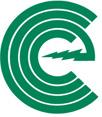
2023 non-operating margins to the unallocated reserve account.
• Received the 2023 safety report and the 2024 safety training plans.
• Moved to approve a revision to the Operation Round Up grant program bylaws.
• Moved to approve the time-of-day rate structure.
• Received a report on the 2023 winter ice storm.
• Received a report from the Minnkota board meeting.
• Moved to approve the credentialing committee report.
• Moved to approve the January 2024 capital credit estate payments.
• Reviewed upcoming meetings and events.
The next board meeting is scheduled for Monday, March 25, 2024.

Communications:
Jocelyn Lura Hovland
Kaitlyn Hartman
David Youngs
Printer: Forum Communications
Printing
Board of
Paul
Douglas Anderson
Sid Berg
Stacey Ackerman
Tom Seymour
Glenn
Wendy Loucks
Kalvin Hoff, treasurer
Terry
Executive
Jodi
Paul
Chad
Tim









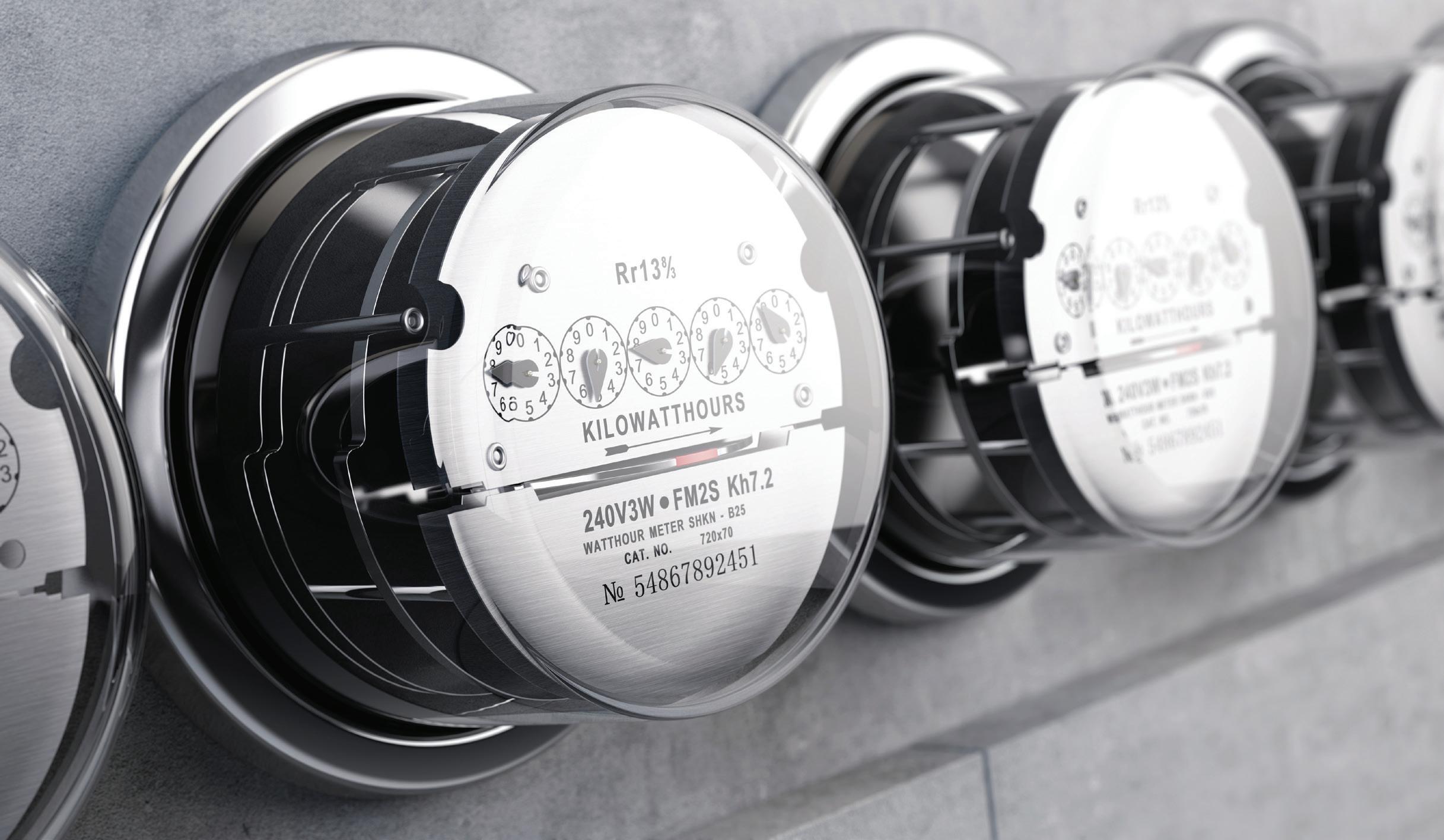
As a Cass County Electric Cooperative (CCEC) member, you know how to make smart energy choices that help save money. But did you know that when you use electricity can be just as important as how much you use?
Throughout the day, energy use fluctuates based on consumer demand. On CCEC’s system, most households use more significant amounts of electricity in the morning when people are getting ready for their day. The same can be said for the evenings, people return from work, cook dinner, wash clothes, and watch television.
Times when people in our community are using more electricity simultaneously are called “peak” hours. During peak hours, the cost for CCEC to provide power is higher because of the additional demand for electricity.
By shifting some of your energy use to hours when demand is lower, also known as off-peak hours, you can help keep rates lower for you and your fellow members.
There are many ways to save energy and money by making minor adjustments to your daily routine. Here are a few easy ways you can shift energy use to offpeak hours:
• Adjust your thermostat. Lower the thermostat a few degrees during peak hours during the winter months.
• Wash full loads of clothes in cold water during off-peak hours.
• Run the dishwasher right before you go to bed, or airdry dishes by opening the dishwasher instead of using the heated dry cycle.
• Turn off lights and electronics
when not in use. (Try to make this a daily habit, whether during peak or off-peak hours.)
CCEC’s board of directors recently approved a time-of-day rate after a 2-year pilot project. Participants in the program receive on-peak and off-peak pricing for energy consumed during different hours of the day.
• On-peak - Monday through Friday 6-9 AM and 4-8 PM at $.222 per kWh
• Off-peak - All other hours at $.052/kWh
• The current electric rate is $.089/kWh
CCEC members participating in our off-peak program do not make ideal candidates for this rate option. For more information, visit CassCountyElectric.com/ timedayrate.
As a cooperative, we are owned by the members we serve, and unlike investor-owned utility companies, we promote saving energy to help you save money!
Whether you are a lifelong North Dakota resident or a new occupant, it oftern seems that wintertime is an endless battle with Mother Nature. If you are looking for a way to lower your winter heating costs and keep your home warmer and more comfortable, you might want to think about how exhaust fans can impact your efforts.
Exhaust fans are a key part of your home’s ventilation system and using them properly can help lower your winter heating costs. Exhaust fans remove unwanted moisture from a room and send it outside through an exhaust duct. The exhaust duct should only operate as a one-way traffic route. However, cold winter air may creep in the wrong way, causing heat loss.
Your home’s exhaust fans provide some essential functions for
everyday living. In kitchens, they help rid the room of smoke, oil, and particularly strong odors. Your kitchen exhaust also has the duty of carrying away steam from pots of boiling water, which is vital to protecting the walls and ceiling near your stove from moisture damage.
In the bathroom, the exhaust fan serves as a prime function for mold and mildew prevention. Its main job is to remove moist air from the room after a hot shower or bath, thereby making it harder for mold or mildew to thrive while also protecting walls from moisture damage.
Though more modern exhaust fans feature timers or heaters to limit heat loss, many homes still have regular fans. Even with a standard exhaust fan, however, it’s possible
to minimize heat loss without purchasing an expensive fan.
Here are some of the steps you can take to prevent heat loss:
• Insulate exhaust pipes that go through the attic from a second story or top floor to prevent heat loss.
• Ensure your exhaust fans have a backdraft damper installed at the location of the exhaust duct’s exit either on an exterior wall or the roof.
• Regularly check dampers for broken pieces and flaps, especially after a serious storm.
• If you notice a cold spot near an exhaust fan despite a lack of damaged parts, you may wish to consider installing a higher quality system.
• Consider swapping in a timer switch in the bathrooms.

District 2
These candidates will be up for election at this year’s annual meeting on April 16.
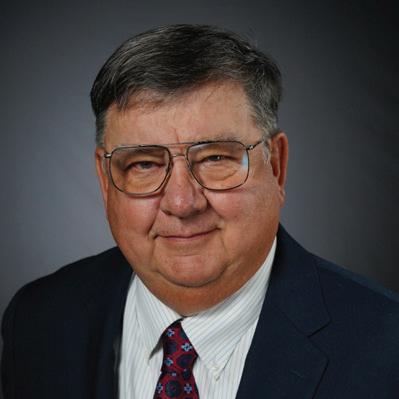
Douglas Anderson: District 2, Arthur, N.D.
Incumbent: 1997 - Present
I would like to take this opportunity to express my concerns about the future of our power supply. Currently, we are facing an attack on the coal industry. The Biden Administration’s plan to reduce or eliminate CO2 emissions from coal generation will increase our costs significantly. Your cooperative has an ownership stake in coal generation, and we need to push back on groups whose plans are to eliminate coal. Members of these groups live in our service area and have a right to run for the board to advance their agenda. Be aware of board candidates with an antagonistic plan, as they could seriously disrupt the board’s function and our cooperative’s financial health, affecting your pocketbooks significantly.
District 3
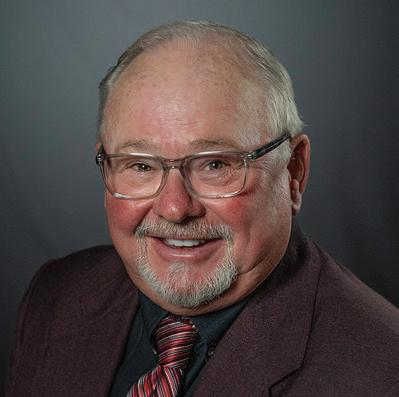
Sid Berg: District 3, Colfax, N.D.
Incumbent: 2003 - Present
I like serving the patrons of not only my district but the entire cooperative. It has been a fantastic learning experience meeting people from all over North Dakota and many other states. The electrical industry has been through many trials and tribulations, which will be long-going with fossil fuel and green energy. This country needs all energy sources to work hand in hand for a reliable grid. I have served Cass County Electric from 2003 to the present date and would like to continue serving this great cooperative.
District 3

Brian Gregor: District 3, Kindred, N.D.
CCEC customers enjoy reliable, economically priced energy as the result of strong strategic plans and policies developed by CCEC leadership over the years. New federal energy policies and regulations aimed at eliminating fossil fuel use are creating significant challenges to providing reliable, cost-effective energy. As a director, I would be committed to focusing what I have learned during my 30-year engineering career on strong strategic plans and policies to ensure CCEC member satisfaction by continuing to provide reliable, cost-effective energy. I would be honored to receive your vote and represent you as a CCEC director.
District 3
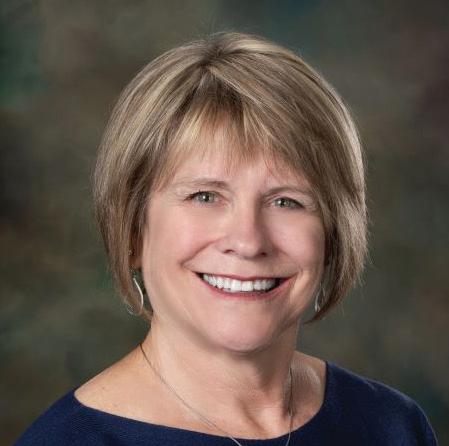
Vanessa Kummer: District 3, Colfax, N.D.
As farmers, Cass County Electric is a big part of our everyday lives. We worked with them when we built a house and when we needed to install three-phase for our operation. The cooperative model has been and continues to be very critical to rural America. I want to represent the people of my district and for the whole cooperative to do what is best for our future.
District 7

Wendy R Loucks: District 7, Fargo, N.D.
Incumbent: 2003 - Present
We are approaching major decisions about carbon capture and sequestration, future energy sources, and the management of the cooperative. It is imperative a board member be objective yet deliberate, willing to change his or her opinion if the weight of the evidence warrants. As a former Chairman of the Board, I understand the impact a board’s decision has on its members. My position has always been, and will always be, to protect the finances of the cooperative while fully, fairly, and impartially representing you. I am humbled and honored to have served on the board and ask you to support me in the 2024 election.
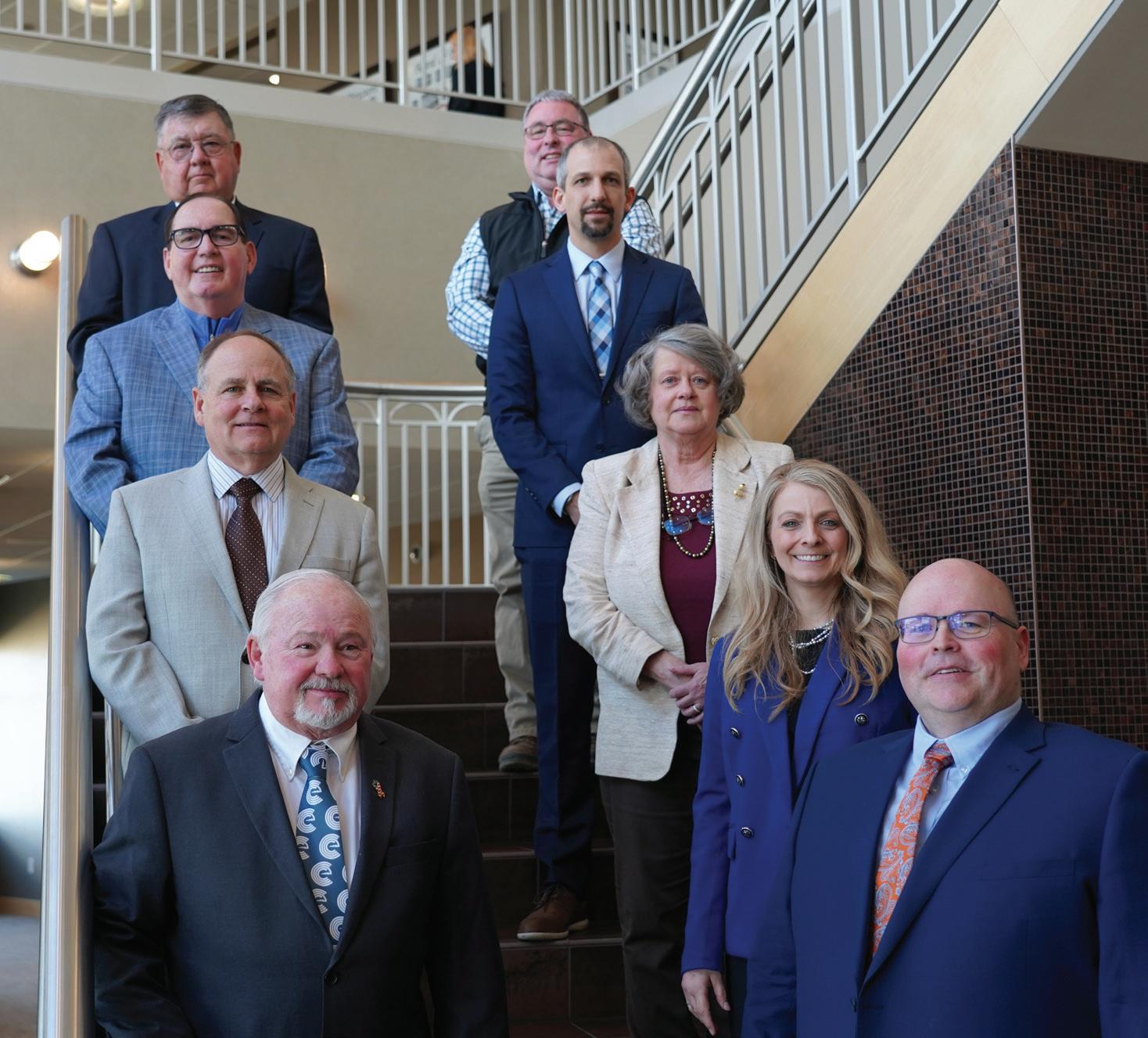
Members of the Cass County Electric Cooperative board of directors are elected to three-year terms every spring. Directors must be members of the cooperative and be a bona fide resident of the director district in which they are seeking directorship. That means you, as a member, can have a say in Cass County Electric operations by voting for your directors. Democratic member control is one of the principles that sets cooperatives apart from other types of businesses and utilities.
View the back page of the magazine for 2024 annual meeting information.
At Cass County Electric Cooperative, we have historically chosen our board of directors by voting at the annual meeting. Thanks to the board of directors, if you are unable to attend the annual meeting in person, you can now vote absentee. To receive your absentee ballot, simply reach out and we will mail it to you!
• Stop by our office
4100 32nd Ave. S. Fargo, ND 58104
• Give us a call toll free (800-248-3292) or locally (701-356-4400)
• Send us an email at info@kwh.com
• Fill out our online form CassCountyElectric.com /contact-us
Ballots must be returned by Friday, April 12, 2024, at noon.

DISTRICT 2

DISTRICT 3

DISTRICT 7
5 Lastly, your board of directors decides to retire, or pay, the capital credits when our financial condition permits.
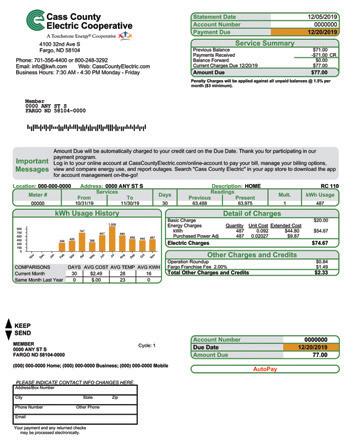
Your board of directors just approved a record $3.5 million in capital credit retirements!

Please visit CassCountyElectric.com/capital-credits to see if you, family, or friends have capital credits waiting!
Cass County Electric Cooperative (CCEC) is excited to announce that it will be returning $3.5 million in capital credits to its members who paid for electricity in 2003 and 2004 (partial). CCEC’s board of directors approved the retirement at its January 2024 meeting.
Cass County Electric Cooperative is a not-for-profit organization, meaning we operate at cost, and any excess revenues, or margins, are returned to our members in the form of capital credits. Since our inception, Cass County Electric Cooperative has retired more than $37 million.
Active consumer-members: In March, capital credits will be applied, but reflected on your February billing statement.
Notification of the retirement is on your billing statement.
Inactive consumer-members: CCEC encourages all members to view the capital credit retirement list on our website to see if they have friends or family with capital credits waiting for them.
It is important for all prior CCEC members to keep their contact and addresss information up-to-date so that we can ensure the receipt of later capital credit retirements.
How does the capital credit process work?
1. CCEC keeps track of how much electricity you buy and how much money you pay for it throughout the year.
2. At the end of the year, the cooperative completes financial matters and determines whether there are excess revenues, called margins.
3. Consumer-members receive a portion of the margins as capital credits based upon the amount of revenue each member contributed throughout the year.
4. When CCEC’s financial condition permits, your board of directors decides to retire (pay) the capital credit allocations from previous years.
5. The cooperative notifies you of how and when you’ll receive capital credit retirements on your billing statement.
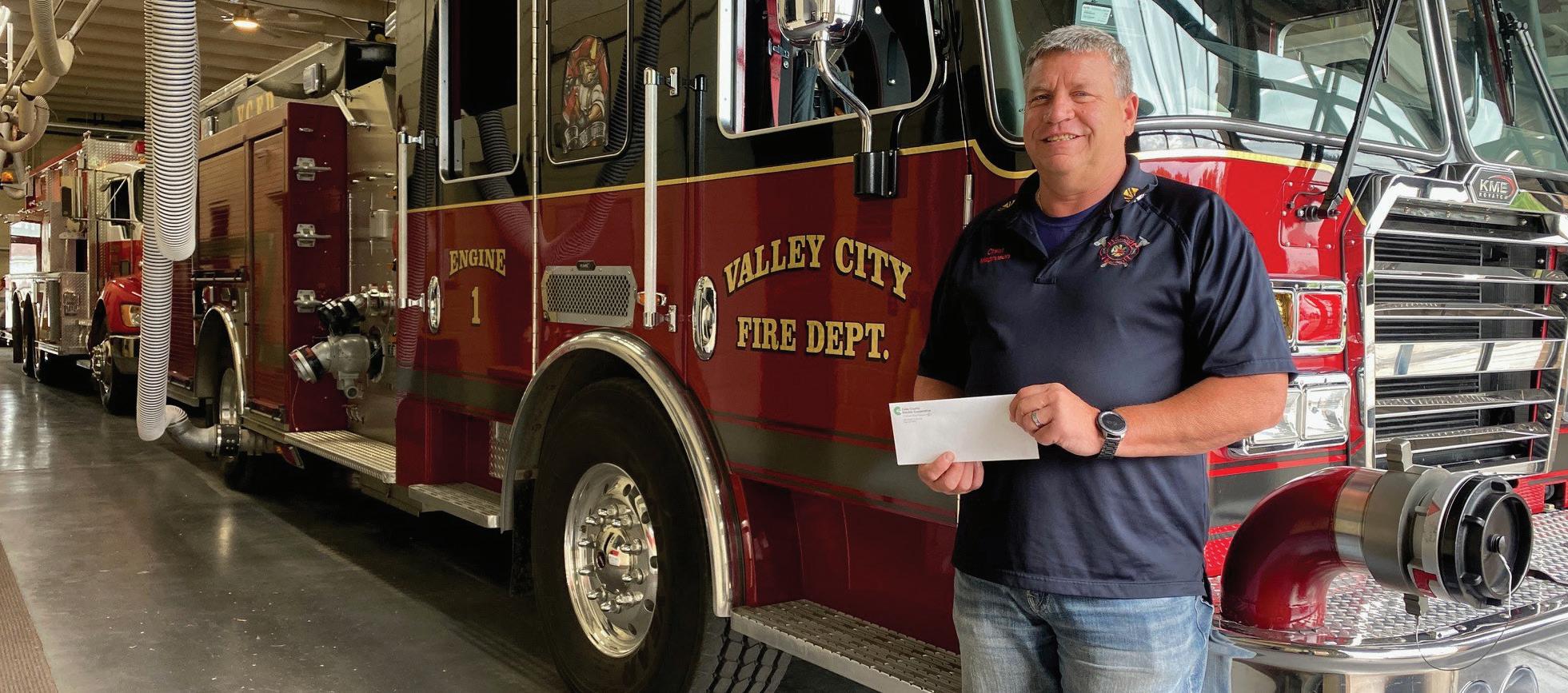
The Rural Development Finance Corporation (RDFC) is a North Dakota nonprofit finance and development corporation whose member-owners include the North Dakota Association of Rural Electric Cooperatives (NDAREC), the Broadband Association of North Dakota (BAND), and all of North Dakota’s electric and telecommunications cooperatives. RDFC encourages economic diversification and community vitality by generating funding that supports sustainable asset building.
The goals of this program are to:
• Assist local development organizations.
• Assist political subdivisions in leveraging additional capital to finance business and community economic development activities.
• Provide microloans, and establishing or enhancing revolving loans.
• Provide community loans for residential property or industrial park development, infrastructure, and projects involving essential services.
• Provide other uses considered on a case-by-case basis. RDFC funds
must be matched dollar for dollar and be repaid in 10 years or less.
The purpose of this loan fund is to expand lending capacity to primary sector businesses and the expansion of start-up retail and servicebased businesses. Funds can be used for structural improvements, equipment, and expenditures that will enhance the overall image of the business and commercial districts in rural communities.
This program partners with the Bank of North Dakota (BND) and refers to the guidelines BND uses to administer its interest buydown incentive program (PACE and Flex PACE).
The funds are used to help rural communities leverage the interest buydown. Eligible projects typically include structural improvements, equipment purchases, and expenditures that will enhance the overall image of a business or the commercial district of a rural community and/or provide necessary services. Loans are
targeted toward projects that create or retain jobs, add new products or services, and/or construct, renovate, or expand rural businesses.
Quality of life is a fundamental value that drives RDFC’s efforts. This is emphasized through the grant program. Each year, RDFC provides $3,000 in grant funding to each member cooperative, allowing them to develop and aid the communities they serve in a practical and actual way. CCEC’s 2023 grant recipients are listed below.
• Arthur Fire Department
• Valley City Barnes County Rescue Squad
• Fort Ransom Community Club
“One of Cass County Electric Cooperative’s core principles is Concern for Community,” said Paul Matthys, CCEC vice president of member services. “These grants are one way of helping to ensure that our rural communities enjoy a vibrant and fulfilling quality of life.”
For more information, visit CassCountyElectric.com/RDFCgrant.
Germany has long been recognized as Europe’s economic powerhouse and a world leader in automotive production, machinery manufacturing and other technological exports.
But things are changing quickly. In 2023, Germany was considered among the world’s worst-performing major developed economies, with both the International Monetary Fund and European Union forecasting the potential for a recession.
Germany’s energy policy is considered a major culprit. In recent years, the country has made a rapid transition away from nuclear and coal power plants in favor of the expansion of renewable resources and the supplemental import of natural gas from Russia. The overreliance on these resources has led to increasing energy costs and decreasing reliability of electricity.

German citizens have their own term – dunkelflaute – for the challenges that can arise when renewable energy is not able to meet the 24/7 demand for electricity. The word translates to “dark doldrums,” which is a period of time when little or no energy can be produced by renewables because it is not sunny or windy. This lack of production increases the likelihood of rolling blackout conditions.
In April 2023, Germany closed its final three nuclear plants, which provided reliable, carbon-free electricity to the country’s grid. In addition, the ongoing conflict between Russia and Ukraine has led to a significant drop in Russian natural gas imports to support the intermittency of renewable energy production. With growing uncertainty about the price and availability of electricity this winter, German officials decided in October 2023 to reactivate previously mothballed coal power plants and extend their lifespans.
“Until it is clear that energy is available and affordable, we should end dreams of phasing out electricity from coal in 2030,” said German Finance Minister Christian Lindner in a November 2023 interview with the German newspaper Koelner Stadt-Anzeiger.
“Now is not the time to shut down power plants,” he added.
As the United States continues to transition its power supply to more renewable resources, it should take lessons from Germany’s approach. Making substantial changes to something as important as the nation’s electric grid should be approached with caution and common sense. Ensuring the reliability and affordability of electricity is not only essential to the American economy, but the safety, national security and the wellbeing of the nation’s citizens.
Decarbonization of the electric grid is an ambitious goal and will require decades of unprecedented work and technological breakthroughs. Mistakes made during the energy transition are extraordinarily difficult to reverse. The United States should create policy that prioritizes reliability, affordability and resiliency as progress is made toward environmental targets.
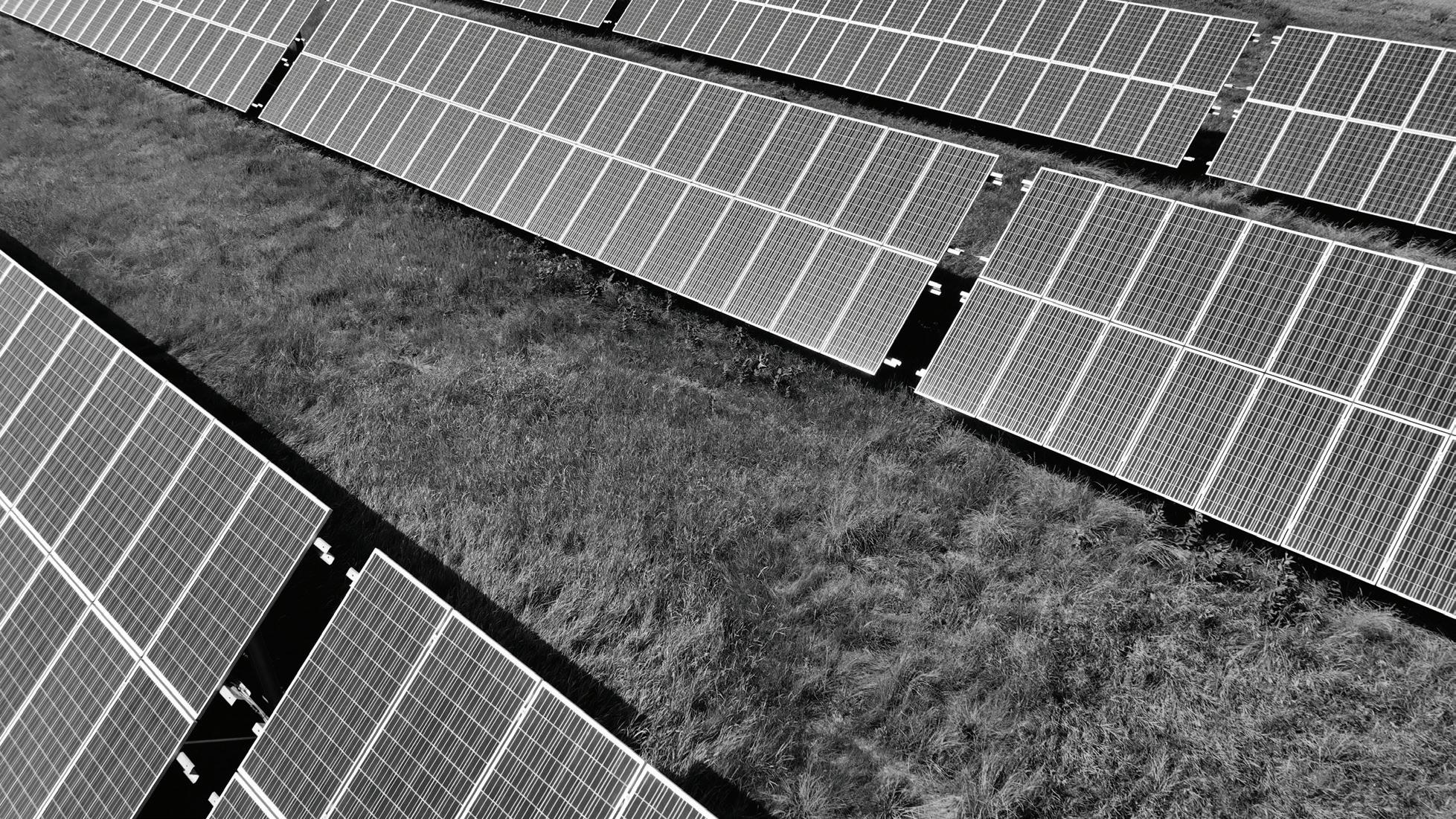


Hometown: Fargo, ND
Education:
BA in Communication Studies and Multimedia Journalism, Concordia College (2020)
Tell us about your career: I’m deeply passionate about storytelling and have had the pleasure of doing so in higher education, public affairs, healthcare, and sports throughout the Upper Midwest. I couldn’t be more thrilled to continue this by serving the incredible residents of North Dakota at a member-owned, communitydriven place like Cass County Electric Cooperative.
Tell us about your family:
Born and raised in Fargo, I’m the oldest of three (younger siblings Geoffrey and Julia) and the proud son of two educators. My ecstatic love of sports (fandom and competition) comes from my dad Vic, and my (slowly improving) passion of cooking and baking can be accredited to my mom Melissa. Finally, I’d be remiss to not mention our goldendoodle Mille, who keeps us all in line.
What are your hobbies?
A diehard Minnesota Twins and Green Bay Packers fan, I love watching and analyzing sports at all levels. When I’m not on the couch watching, I stay busy as an active
tennis player and runner while also finding time to explore new recipes on the grill.
What advice have you received that was the most impactful?
Through the good, bad, and even ugly, always stayed focused on things within your control. There will always be uncontrollable situations and outcomes that may warrant frustration, yet allocating your time and energy toward them will only stagnate your journey of growth and success.
If you won the lottery, what is your first purchase?
A new (and very nice) fishing boat!
All of my previous watercraft have embodied the phrase that BOAT stands for “break out another thousand,” and I’d love to fish the beautiful waters of North Dakota and Minnesota without motor failure.
What’s your dream vacation?
While sunny and 75 on beach sounds nice, I’d love a weeklong fly-in to remote Ontario spent with walleyes and trophy pike!
What’s your favorite season?
Easily fall! Football (Go Pack Go), fishing, and the beautiful colors that this part of the country has to offer.
What’s your favorite food?
Anything on the grill or in the smoker along with authentic Mexican food.

Check out our Pinterest page for more recipes!

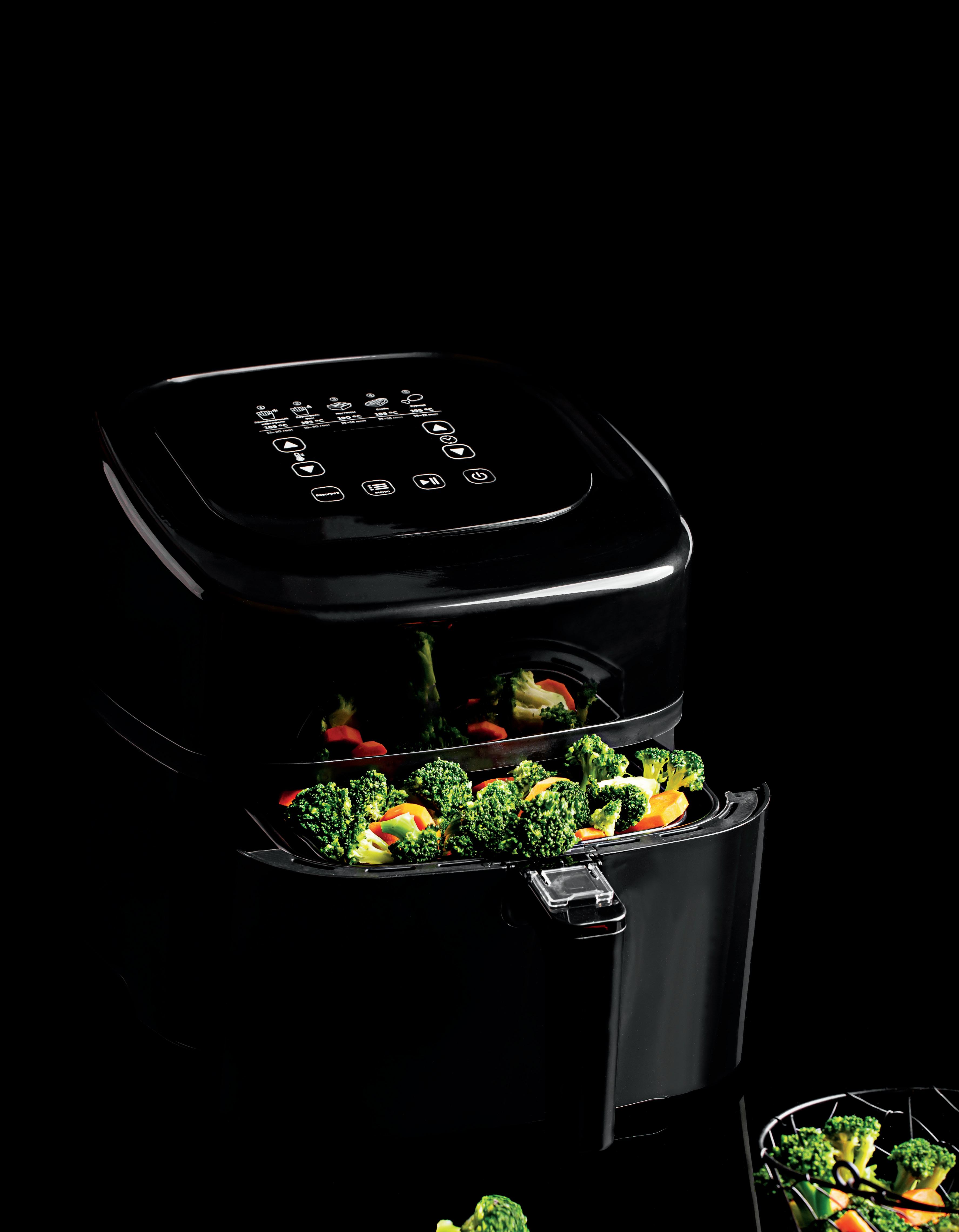
Air fryers are small appliances that consume much less energy than full-sized ovens. Many air fryers use around 1,500 watts. By contrast, a full-size oven uses between 2,500 and 5,000 watts. This makes air fryers doubly efficient in terms of energy consumption. It also makes air fryers less expensive to use. A typical gas oven costs $0.30 to $0.40 per hour of cooking, while an electric oven costs about $0.52 an hour. An air fryer, meanwhile, uses about half as much energy and costs $0.25 an hour.
Besides potentially saving you money on electricity, air fryers can cook up to twice as quickly as your average oven. Plus, the average oven takes 10 to 15 minutes to preheat, while air fryers generally don’t need to be preheated at all or for nearly as long. Remember, all air fryer models are different, so experiment a bit until you find what’s best for yours.
Ingredients:
1 pound lean ground beef
1/2 yellow onion, finely chopped
1 large egg
1/2 cup plain breadcrumbs
1 teaspoon salt
1 teaspoon ground black pepper
1/4 cup, plus 2 teaspoons ketchup, divided 9 strips bacon, halved
2 Tablespoons brown sugar
Preparation:
Preheat the air fryer to 350°F. In a large bowl, combine beef, onion, egg, breadcrumbs, salt, black pepper, and 2 Tablespoons ketchup. Using your hands, mix until evenly incorporated. On a piece of parchment paper, form the beef mixture into two equal loaves that will fit in your air fryer. Layer bacon slices on top of loaves.
In a small bowl, whisk brown sugar and the remaining 1/4 cup of ketchup and brush onto bacon. Place the pan on a rimmed baking sheet or something similar that fits your air fryer, as juices may overflow during baking. Bake for 25-30 minutes or until a thermometer reads 160°F.
Let rolls rise if instructed. Preheat the air fryer to 350°F. Whether your air fryer has a setting for this or not, giving it a 5-minute head start will help the rolls cook faster. Cook rolls for the time instructed on the store-bought packaging. Don’t crowd the basket. Cooking the rolls in a single layer will help them cook
Ingredients:
12 ounces broccolini
1 Tablespoon olive oil
1 Tablespoon lemon juice
1 clove garlic, minced
1/2 teaspoon kosher salt
Parmesan cheese, grated
Preparation: Preheat the air fryer to 380°F. Rinse broccolini and shake dry. Trim the tips of the broccolini. Combine olive oil, lemon juice, garlic, and salt. Toss with broccolini and place in a single layer in the air fryer, take care not to overcrowd. Roast broccolini for 6-7 minutes. Broccolini can be replaced with broccoli and will need to be cooked at 400°F for 5-7 minutes. Serve topped with Parmesan cheese.
evenly. Fewer rolls will cook more quickly. Check for doneness before declaring them finished; slice one open to double-check. Brush with melted butter and sprinkle with flaky salt, then pop them back in the air fryer for a final minute.
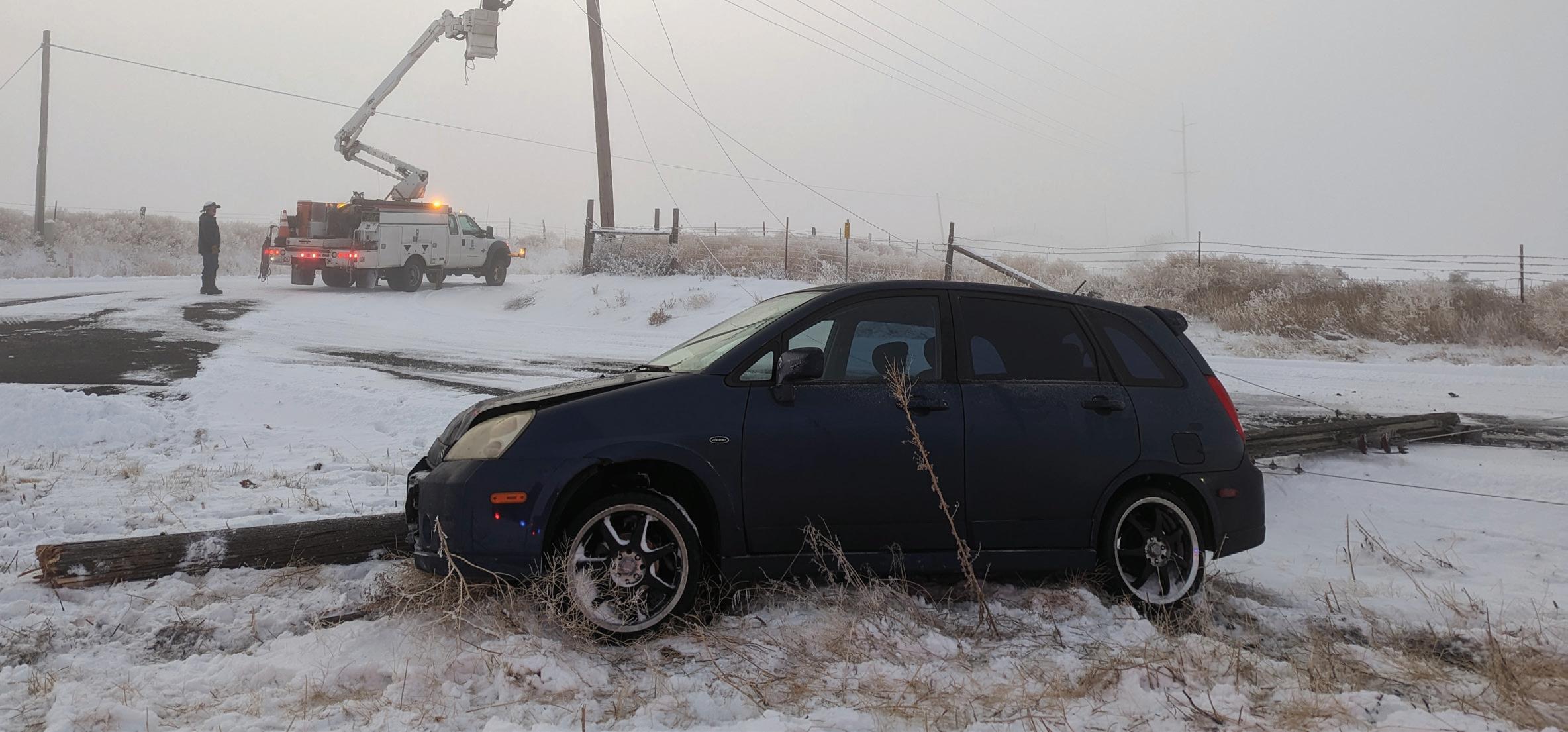
While typically not an everyday occurrence, overhead power lines, padmount transformers (green boxes) or other electrical equipment can become damaged due to storms, fires, car accidents, animal interference or from a car slipping off the road, for example.
(Spoiler Alert. Do not do any of these things.) If you were in an accident involving a downed overhead power line, would you get out of the car and run? If you saw a car accident involving a downed line or damaged green box, would you run to the scene to help? If you saw a downed line across a road, would you approach it or try to move it?
Any of these actions can cause serious injury or electrocution (death). Downed lines and other damaged equipment can energize the ground, nearby people, and
objects. Never go near a downed power line or try to move it with an object. Electricity can jump from a wire or object to you to find the quickest path to ground.
The safest place to be after an accident involving a downed power line is inside your vehicle or cab. Unless your vehicle is on fire or giving off smoke, here is what you should do:
1. Stay inside your vehicle or cab.
2. Call 9-1-1 and report that there are downed or damaged power lines.
3. Try to remain calm.
4. Wait for the utility crew to arrive to deenergize the power.
5. Do not get out until someone from the utility says it is safe to do so.
If you must get out of the vehicle because it is on fire, cross your arms
over your chest and make a clean, solid jump out, then intentionally hop with your feet together as far away as you can. If you are unable to make solid hops, shuffle with your feet close together.
When you exit, do not touch the vehicle and the ground at the same time. You could become electricity’s path to ground from touch potential (touching something energized and the ground at the same time).
Hopping helps avoid step potential (placing each foot at a different voltage). When electricity escapes into the ground, it is likened to ripples in a pond, with each ripple representing a different voltage.
To learn more about electrical safety, visit CassCountyElectric.com/ safetyblog.
Member market
All ads must be 40 words or fewer and will be abbreviated following our guidelines. No real estate or commercial ads will be accepted. Ads are published for members at no charge as space permits on a first-received, first-printed basis. Ads are due by the 10th of the month prior to publication. Members may submit only one ad per issue. Editor reserves the right to edit or reject any ad. Email ads to: ccec@kwh.com
For Sale
225+ 33 1/3 records, mostly country western. 701-967-8920
350 small sq. bales, under cover & 1/3 alfalfa 2/3 grass. 5x5 round bales from 2022 $28/bale. 701-437-3259
Heavy duty tractor chains. 2 7,500 Butler bins, disassembled. 701-3180104
Big tires and wheels for a Jeep Wrangler size LT315/70r17. MoJack for riding lawn mower, like new, $150. 701-646-6032
Champion portable generator, 6,000 kW, 7,500 startup, only used 1 hour. 701-540-8476
Used golf balls, 2 pull carts, part parts & accessories. Books of all kinds. Antique American soldiers & toys. Red Wing crocks, 20 gal., 5 gal., & jug. 701-893-6888
Zvox AV201 AccuVoice TV sound bar, $75. Limited edition “Julen” plates from Norway, 1969, 1970, 1977, 1978,
$30/ea. 701-235-7696
Modern office desks, one or both, secretarial (front office), executive (back office) w/ will size credenza & overheads, $100/ea & 6 month free pickup, setup, & transfer. 701-7304521
White wedding dress, worn twice, size 16, $350/OBO. Brown wood coffee table 52” wide x 28” across x 18” high, $250/OBO. 701-540-1456
2003 Harley Davidson FatBoy, 100th Anniversary, 13,000 mi, fuel injected, detachable windshield, screaming eagle pipes, lockable saddlebags, chrome swingarm, $8,500. 701-3612551
2013, Hyundai Santa Fe, Sport, silver-metallic, SUV AWD, auto-start, Bluetooth, brand new brakes, fairly new tires, agile, 136k mi. $12,500. 701639-3716
Whirlpool stacked washer/dryer. $100/OBO. 480-234-5069
Oak king size headboard w/ metal frame 84”x52”x16”, matching oak 10 drawer, 2 door dresser 62x49x21. Full-sized dark maple headboard 62”x54”x14”, 2 matching side cabinets 20x54x14, matching 2 drawer dresser 62x32x16. Each set, $20. 701-541-6325
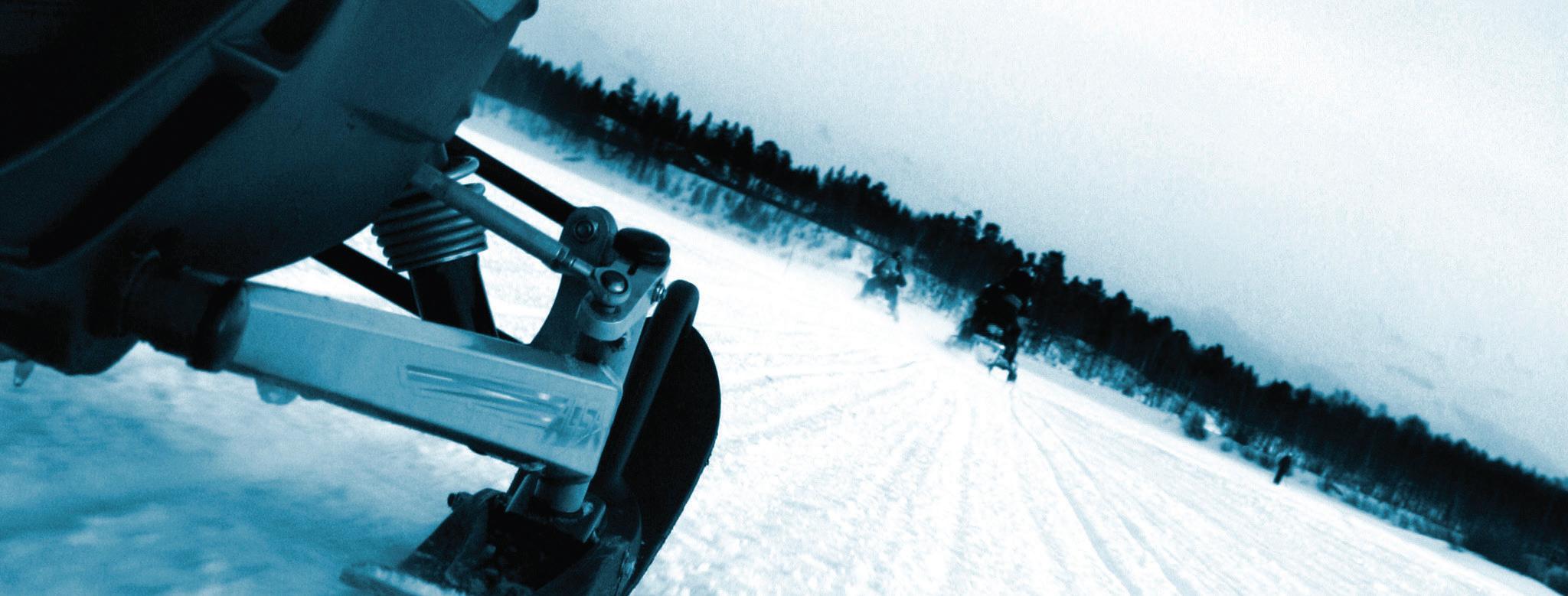
Ditches, and fields may contain debris from the ice storm, posing risks
Whether you’re a winter activity enthusiast or working on storm cleanup, please be cautiousdebris could be hidden in snow and ice. Be careful, stay alertdon’t get hurt.

